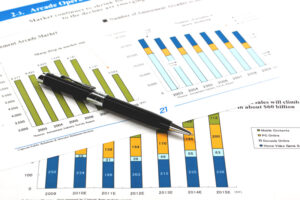- The US Surgeon General has released a new report highlighting that moderate drinking can cause cancer.
- Richard Piper, an alcohol harm expert used to drink heavily.
- His ‘dry by default’ rule helped him reduce the risks of drinking without going sober.
At 52, Richard Piper runs often, feels full of energy, weighs less, and enjoys concerts and holidays more than he did at 42 — which he attributes to being “dry by default.”
Piper told Business Insider that he drank heavily every day for years. But after becoming the CEO of Alcohol Change UK, a harm reduction charity, in 2017, he realized he needed to change his drinking habits.
He joined a growing number of people who are drinking less, particularly Gen Zers and millennials. A survey carried out by Gallop between 2021 and 2023 found that 62% of respondents, who were adults aged 18 to 34 in the US, drank alcohol, down from 72% between 2001 and 2003.
Being “dry by default” means Piper is sober most of the time but will drink on rare occasions — for example, when a non-alcoholic alternative to a beer he likes isn’t available.
He prefers this over being sober because he can lower his risk of alcohol-related harm without following “permanent lifelong rules,” he said.
On Friday, Vivek Murthy, the US Surgeon General, issued a new report stating that alcohol is a leading preventable cause of cancer and increases the risk of developing at least seven types of cancer, including breast, mouth, and colorectal. Murthy called for more awareness of the causal link between drinking alcohol and cancer when people decide whether or how much to drink.
“There is no such thing as healthy drinking,” Piper said before Murthy’s report was published. “But there’s more risky drinking and less risky drinking. And the less you drink, the healthier it is.”
Research suggests all drinking is harmful — even in moderation
Some studies have suggested that moderate drinking could be better for you than not drinking. But more recent studies have indicated that the data that pointed to this was flawed — it didn’t take into account that people are more likely to stop drinking if they’re ill or dealing with addiction, meaning their ill health was in spite of not drinking, not because of it.
Now, growing evidence suggests that no amount of alcohol is safe.
According to the US Surgeon General’s report, 25% of cancer cases worldwide in 2020 occurred in people who drank two or fewer alcoholic drinks a day.
Drinking alcohol brings risks to other parts of people’s lives, too, not just health. “Alcohol can lead to poor decision-making — about getting home safely, about who you talk to, and what you say to them — and makes many of us do things that we wouldn’t do otherwise,” Piper said.
You don’t have to quit drinking to lower the health risks
The US Department of Health and Human Services recommends adults drink moderately, meaning fewer than one to two drinks a day, or don’t drink at all.
One to two units of alcohol a week is genuinely low risk for dying from alcohol and alcohol-related issues, Piper said.
Generally, most people would see benefits from drinking less, he said — including losing weight, saving money, sleeping better, having more energy, and easing depression and anxiety. And that’s on top of things you can’t see, such as lower cancer risks.
“Make sure you have a really good reason for having a drink,” he said, and that the benefits of drinking outweigh the risks.
“Basically the less you drink, the better for your health, your mental health, and your well-being,” Piper said, even if you don’t give up completely.
“It’s always good to have a few days off a week. Alcohol should be on the periphery of our lives, not at the center,” he said.
Read the full article here
















